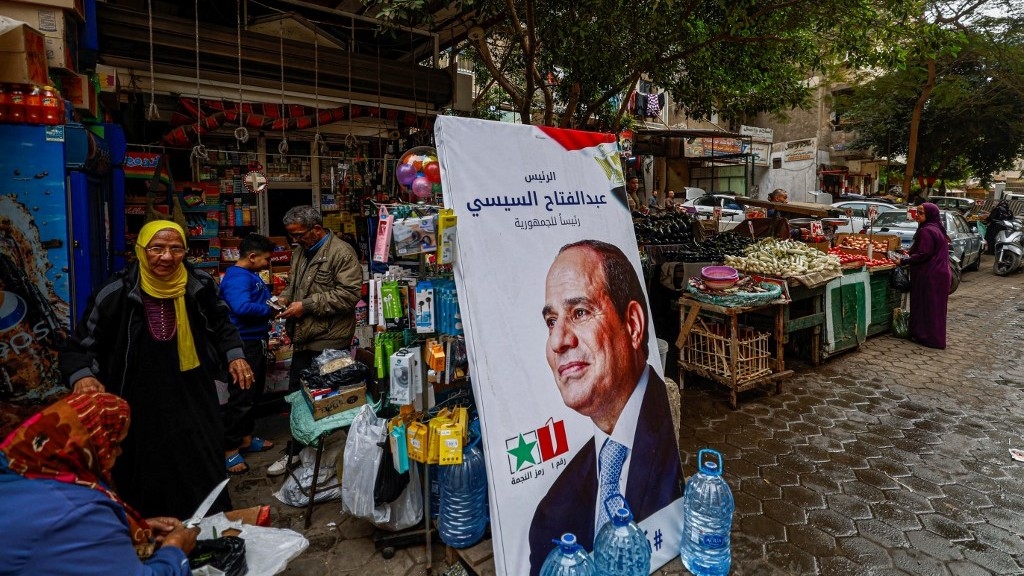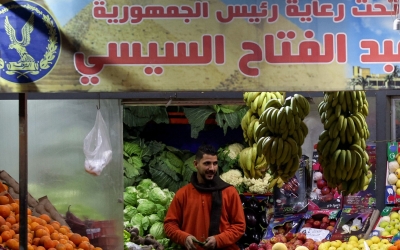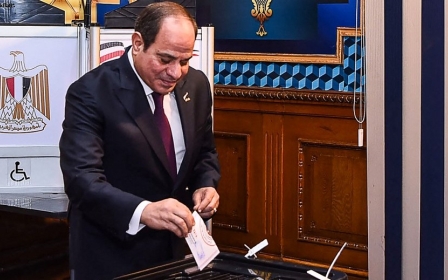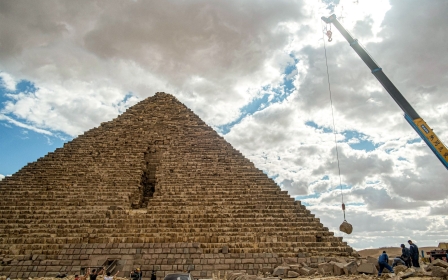Egypt’s Sisi raises minimum wage by 50 percent as inflation soars

Egyptian President Abdel Fattah el-Sisi on Wednesday ordered an increase in the minimum wage of 50 percent amid speculations of an imminent currency devaluation.
"Based on the state's duty to support the citizens under the current circumstances, I have ordered the government to enact a package of social protection measures that include raising the minimum wage by 50 percent, to reach 6,000 pounds ($194) a month," the president said in a statement.
The decision also includes raising pensions for 13 million beneficiaries by 15 percent and income tax exemptions by 33 percent for public and private sector employees.
Egypt’s national currency has plunged by more than half to the US dollar over the past year on the black market, compared to the official rate of about 31.
An International Monetary Fund mission concluded a two-week visit to the country on Thursday for talks on a potential bailout deal that could reach $10bn and is expected to be followed by currency devaluation to match black market rates.
Stay informed with MEE's newsletters
Sign up to get the latest alerts, insights and analysis, starting with Turkey Unpacked
Egypt, home to over 109 million people, is grappling with a severe economic crisis, with record inflation and foreign currency shortages.
In August, annual inflation in Egypt reached close to 40 percent, according to official figures, plunging many Egyptians near or under the poverty line. More than half the population had already been below or close to the poverty line before the current crisis.
Sisi was reelected for a third term in December, after a vote marred by the exclusion of opponents and mass mobilisation of citizens using bribes and intimidation.
It is widely believed that a devaluation of the pound, one of the IMF's conditions, was delayed until after Sisi's election to avoid popular reactions that would have disrupted the electoral process.
Foreign debt has quadrupled, reaching $164bn, over Sisi's almost 10-year presidency. Debt servicing is currently consuming most of the state's annual expenditures.
Egypt's total foreign currency reserves are $35bn, but in 2024 alone, the state is due to pay $30bn to creditors.
According to the Egyptian Central Bank, the ratio of short-term debts to foreign currency reserves in 2022 passed 80 percent, double that of 2021.
Middle East Eye delivers independent and unrivalled coverage and analysis of the Middle East, North Africa and beyond. To learn more about republishing this content and the associated fees, please fill out this form. More about MEE can be found here.





